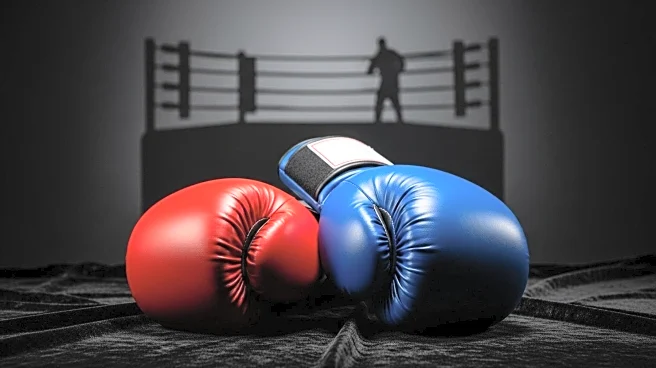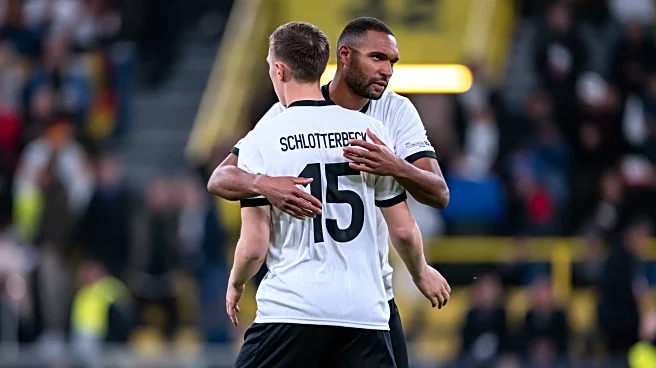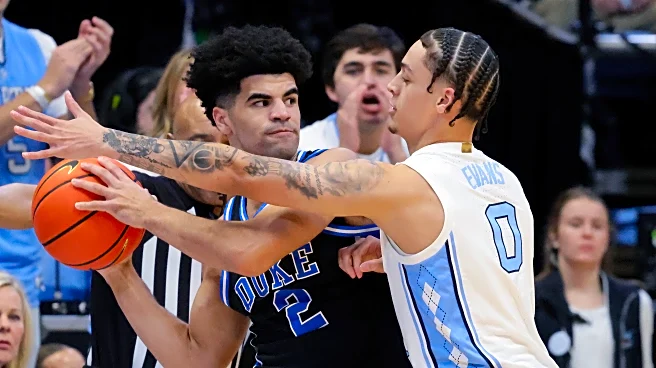What is the story about?
What's Happening?
Manchester is paying its final respects to boxing legend Ricky Hatton, who passed away last month at the age of 46. Hatton's funeral is being held at the city's cathedral, with fans lining the streets as the cortège makes its way through Manchester. Hatton, a former world champion in light-welterweight and welterweight categories, was found dead at his home in Greater Manchester. The cause of his death has not been confirmed, but his struggles with mental health have been widely acknowledged. Hatton was a beloved figure in Manchester and the UK, known for his significant boxing achievements, including his IBF light welterweight title win against Kostya Tszyu in 2005 and memorable fights in Las Vegas against Floyd Mayweather and Manny Pacquiao.
Why It's Important?
Ricky Hatton's passing marks the loss of a significant figure in the boxing world, particularly in the UK where he was a national sports hero. His career highlights, including major victories and high-profile matches, contributed to the popularity and visibility of boxing in the region. Hatton's struggles with mental health also bring attention to the challenges faced by athletes beyond their professional careers, highlighting the need for mental health support in sports. The public mourning and large turnout for his funeral underscore his impact on fans and the community, reflecting the deep connection between sports figures and their supporters.
What's Next?
The funeral serves as a moment for reflection on Hatton's legacy and the broader issues of mental health in sports. It may prompt discussions among sports organizations and mental health advocates about providing better support systems for athletes. Additionally, Hatton's passing could lead to tributes and commemorations within the boxing community, celebrating his contributions to the sport and his influence on future generations of boxers.
Beyond the Headlines
Hatton's death and the public response highlight the cultural significance of sports figures in society, particularly in communities where they are seen as local heroes. The event may also spark conversations about the pressures faced by athletes and the importance of addressing mental health openly. Hatton's legacy could inspire initiatives aimed at supporting retired athletes and raising awareness about mental health challenges.















